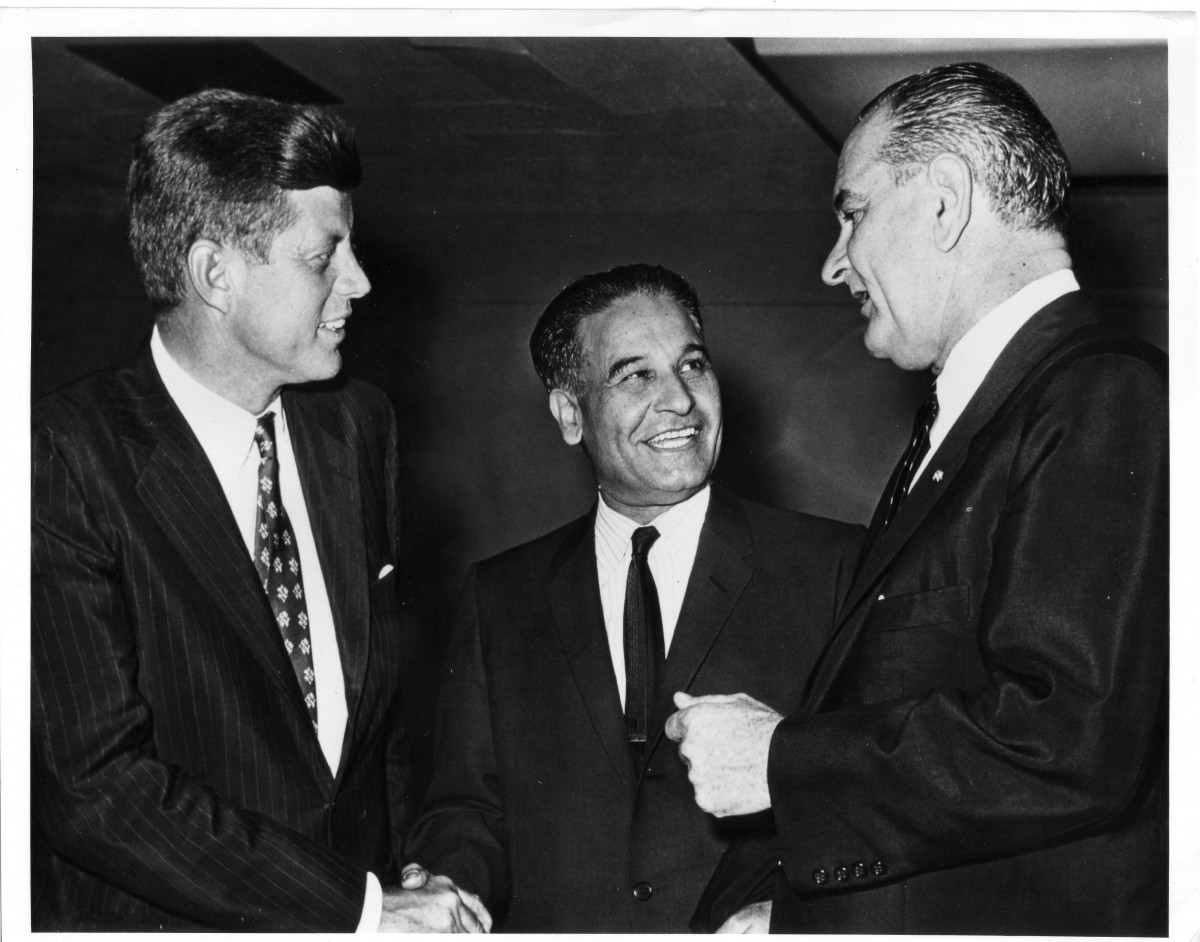By Ronak D. Desai
(Editor’s note: Ronak D. Desai is a Forbes contributor and writes about foreign policy, law and business in South Asia. With the permission from the author, this article is reproduced here from Forbes where it was first published on Dec 23, 2015.)
The Indian-American community is often hailed as one of the most successful ethnic groups in the United States. According to census data, its members have obtained income and education levels far above the national average. But this socio-economic achievement has not translated into commensurate political clout, as shown, for example, by the community’s lack of success in federal elections.
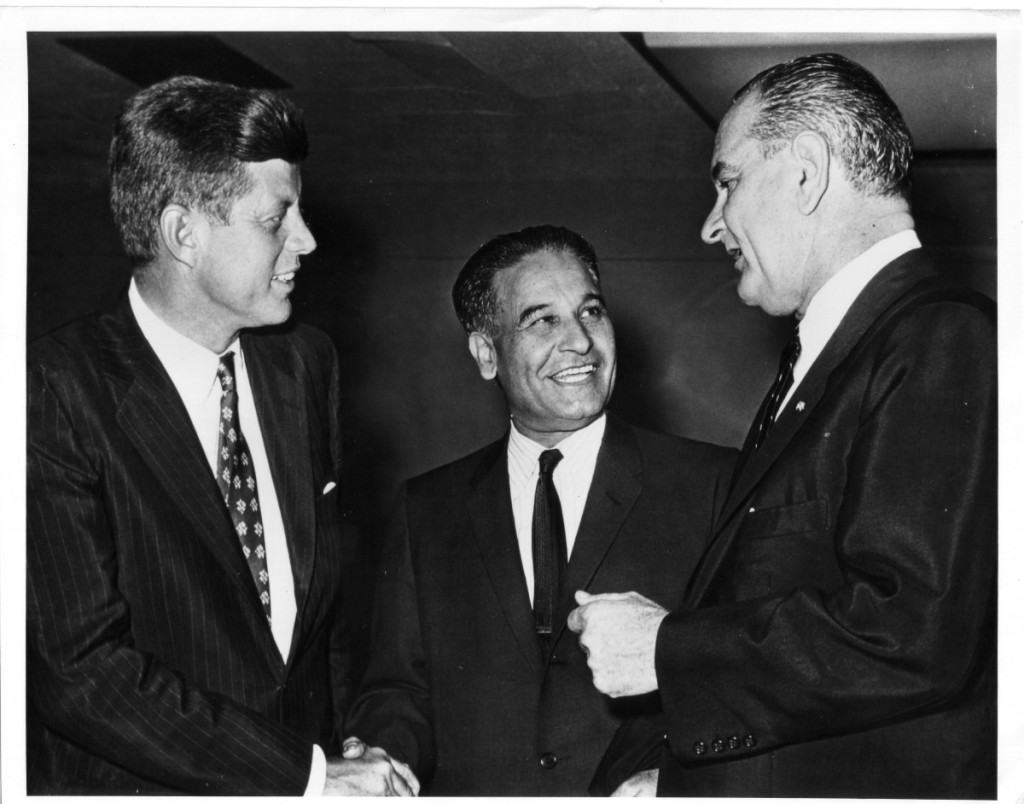
The numbers are revealing. Only three Indian-Americans have ever served in the history of Congress. In 1956, Judge Dilip Singh Saund became the first Asian-American voting member elected to the House of Representatives, where he served three terms. The seat is now held by another trailblazer, Representative Mark Takano, the first openly gay Asian-American member of Congress. Nearly five decades later, Louisiana Republican Bobby Jindal served as a Congressman from 2005 to 2008 before becoming governor of the state.
Elected in 2012, California Democrat Ami Bera is the only Indian-American currently serving in Congress, one member out of more than five hundred. “One member isn’t enough,” Bera asserts. “My hope is that our community will have greater representation in the national legislature soon.”
His hope may soon become a reality.
With a slate of qualified candidates running in upcoming elections, Congress could witness more Indian-Americans joining its ranks next year.
Here is a look at three of the most promising.
Raja Krishnamoorthi – (IL-8)
The son of Indian immigrants, Krishnamoorthi, 41, brings a long track record of both public and private sector experience to the race. His previous government work includes serving as Illinois’ Deputy Treasurer, and running the state’s technology venture capital fund. In 2006, the State Attorney General appointed him Special Assistant Attorney General in her anti-corruption Public Integrity Unit. He was also a member of the Illinois Housing Development Authority and Vice-Chairman of the Illinois Innovation Council. Prior to that, he worked as issues director for Barack Obama’s 2004 Senate campaign.
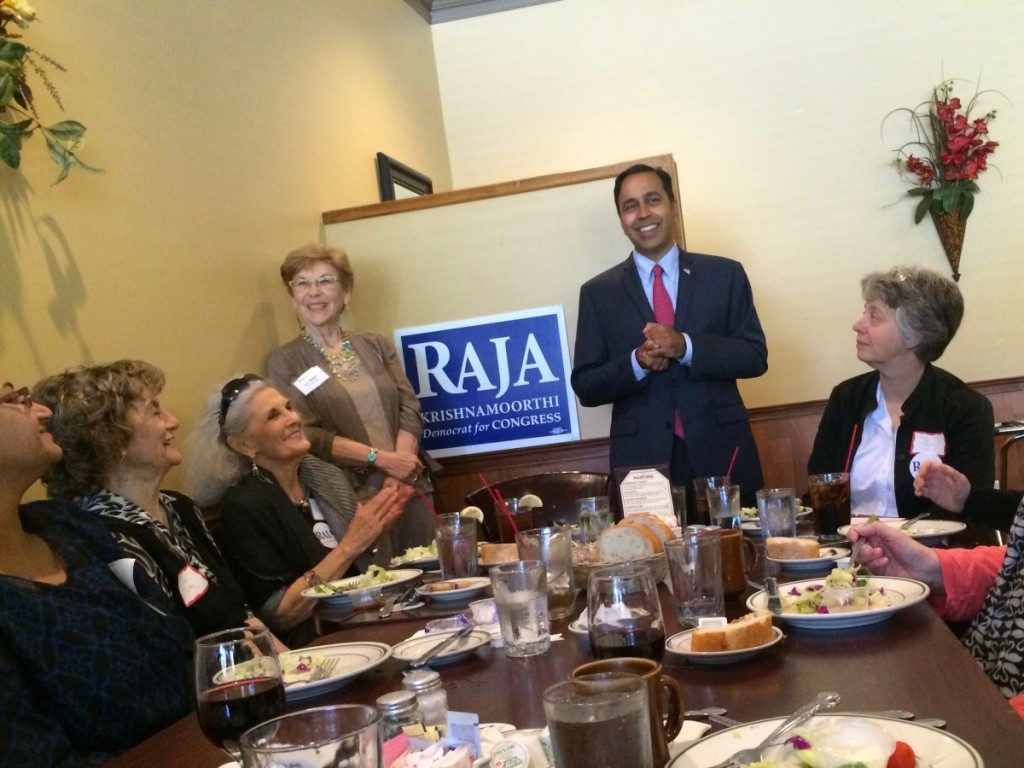
In the private sector, Krishnamoorthi currently serves as President of Sivananthan Labs and Episolar, Inc., small businesses that develop and sell products in the national security and renewable energy arenas. He is a co-founder of InSPIRE, a non-profit organization dedicated to training Illinois students and veterans in solar technology.
In Krishnamoorthi’s view, his exhaustive experience in both government and the private sector has afforded him a unique understanding of the challenges facing the U.S. economy and their implications for families and future workers across the state. “In a time of scarce resources, government, non-profits and businesses have to work together to get anything done. As a small businessman and a former public servant, I am the only candidate with the experience to get the public and private sectors talking to each other and building on our collective strengths to help working families,” the candidate explains.
Signs are emerging that Krishnamoorthi’s campaign has gained the momentum necessary to get him past the finish line. Once widely perceived as the underdog in a crowded primary field, he is now touted as the frontrunner.
Krishnamoorthi’s fundraising numbers and endorsements reflect the strength of his campaign. He has amassed nearly $1 million in contributions so far, dwarfing the fundraising figures of all his primary opponents. He has also won a host of prominent endorsements: former senior Obama aide David Axelrod has endorsed Krishnamoorthi, as have five members of the Illinois’ Congressional delegation. Last week, House Minority Leader Nancy Pelosi added her voice to the chorus of former and current members of Congress endorsing Krishnamoorthi’s candidacy.
The independent, nonpartisan Cook Report has rated the 8th Congressional district as “Solid Democratic.” If Krishnamoorthi can win the primary, chances are high that he will prevail in the general election.
Ro Khanna (CA-17)
In California’s 17th Congressional district, technology lawyer Ro Khanna, 39, hopes to unseat incumbent and fellow Democrat Mike Honda. The 17th district is commonly described as the “heart of Silicon Valley” and encompasses some of the world’s leading technology companies, including Apple Inc, Intel Corp., Yahoo, and eBay.
It also constitutes one of the most ethnically and economically diverse districts in the nation, home to more than 100,000 Indian-Americans. Khanna believes he is uniquely qualified to represent the region and will triumph in the June 7th primary and November general election.
Like Krishnamoorthi, Khanna is also the son of Indian immigrants and boasts his own impressive government and private sector records. Khanna practiced intellectual property law in San Francisco following his graduation from Yale Law School, and stayed active in local and national politics in a number of different capacities.
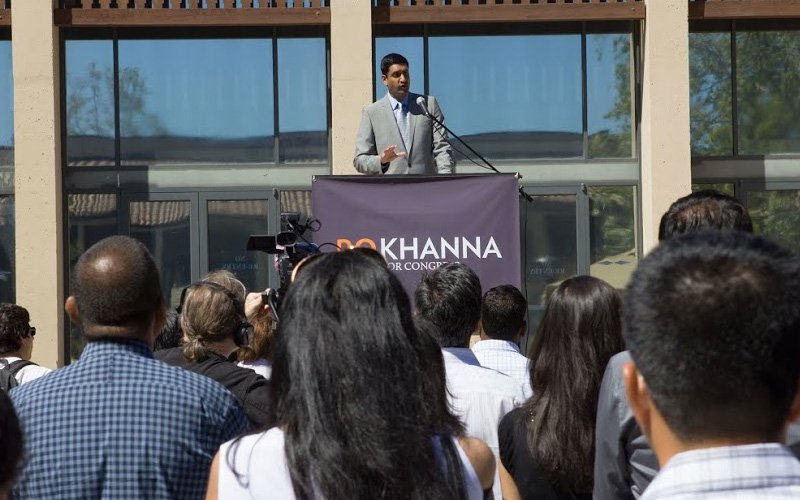
In 2009, Khanna was appointed by President Obama to serve as Deputy Assistant Secretary at the U.S. Department of Commerce, where he was entrusted with promoting trade and U.S. exports abroad to help facilitate job creation at home. After leaving the Commerce Department, he authored a book – Entrepreneurial Nation: Why Manufacturing is Still Key to America’s Future – on the state of American manufacturing and how to keep it competitive in the global economy.
Khanna credits his commitment to public service to his grandfather, who participated in Mahatma Gandhi’s independence movement in India and was imprisoned for his work advancing political and human rights.
He is currently is an economics lecturer at Stanford University and was appointed by Governor Jerry Brown to the California Workforce Development Board for the State of California. Khanna also works as a Vice-President for Strategic Initiatives at Smart Utility Systems, an energy efficiency company with an office in Silicon Valley.
Khanna asserts, “Silicon Valley can help shape thinking about what type of higher education is needed for the jobs of the future. Silicon Valley can help our government understand policies that will allow America to be the most competitive. Silicon Valley can help us understand what investments are needed in basic science and research. Silicon Valley can help deal with income inequality by making sure that every child has the basic education to contribute.”
His campaign message appears to be resonating with voters and supporters across the country, as evidenced by his fundraising advantage in the race and the hundreds of endorsements he has earned from local and statewide officials, unions and other organizations.
This is Khanna’s second campaign against Honda. Last year, he came within striking distance of winning the seat, just narrowly losing to the eight-term incumbent. As the race unfolds, signs are looking increasingly positive that Khanna will become the second Indian-American to represent Northern California in Congress.
Kumar Barve (MD-8)
Longtime Democratic state legislator Kumar Barve is running in the 8th Congressional district in Maryland for the seat being vacated by Representative Chris Van Hollen (D-MD).
Barve was the first Indian-American elected to serve in a state legislature in United States history. He has represented Montgomery County in the Maryland House of Delegates since 1990. He has been in legislative leadership for much of his career, serving as House Majority Leader from 2003-2014 and now as Chairman of the House Environment and Transportation Committee. His committee has oversight of the environment, land use, state ethics and transportation policy.
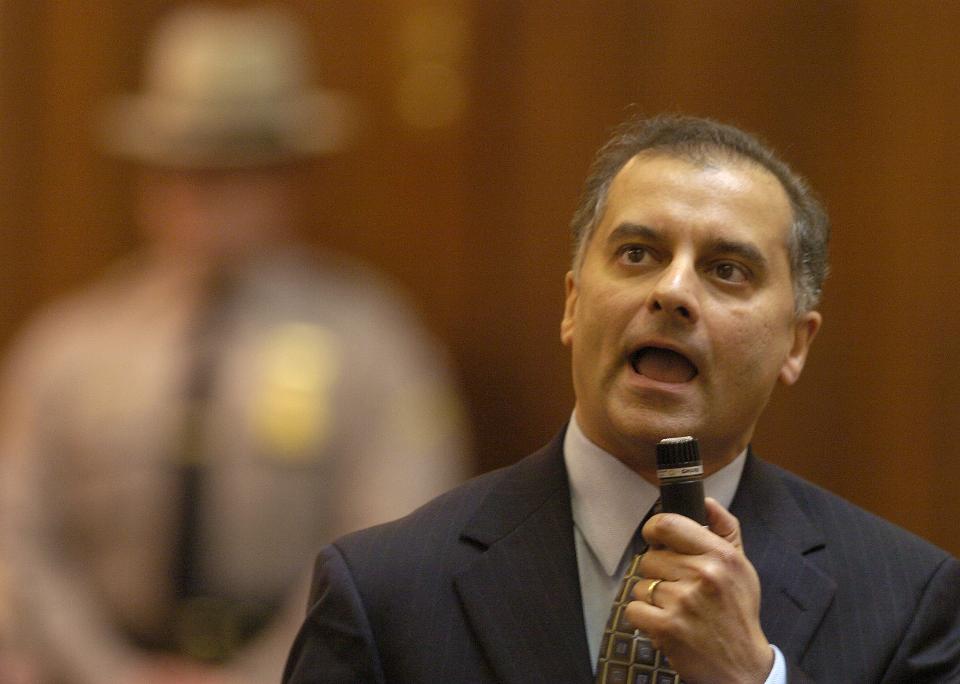
As Majority Leader, Barve was the floor leader for the Democratic Party and a senior member of the fiscal leadership in the House. He helped guide policies that resulted in balanced budgets and the maintenance of the state’s Triple-A bond rating.
Barve is the grandson of Indian immigrants who came to the United States more than a century ago. As Barve recounts in a campaign video he recently released, In His Shoes, his grandfather was a successful scientist with General Electric. Years later in 1923, the U.S. government revoked his citizenship because he was not white. Barve’s grandfather went all the way the United States Supreme Court to regain it. His grandfather’s belief that “good always prevails in America” inspired to Barve to dedicate his life to public service.
Although Barve faces a crowded primary field, he is confident he has a clear pathway to winning the seat. “Our campaign strategy is fully on-track to victory. I am running in a seven-candidate race where none of the candidates have run district-wide. Victory could mean assembling a vote percentage as low 35% to 38%. Most of my opponents are from the eastern reaches of the district, I am by myself in the northern and western parts of the congressional district. The math and geography of electoral victory are clear. I intend to bring all of these advantages to bear in the April 26th primary.”
The breadth and depth of those backing Barve also signals the strength of his campaign. “I have the full support of the American Medical Association, and the majority of environmental activists. I have the support of the national Asian-American community in the voice of CAPAC. Additionally I have just been recognized by the US Internet Alliance for my leadership on technology and economic development nationally.”
To many, Barve’s longstanding experience in the state legislature makes his move to Capitol Hill a natural one.
“Indian-Americans Are Finally Coming of Age”
The emergence of a field of qualified, competitive Indian-American candidates is a relatively recent phenomenon, but reflects the growing political strength of the community.
M.R. Rangaswami, an influential Silicon Valley investor who founded the Sand Hill Group and Indiaspora, a non-profit that brings together leaders within the Indian-American community remarks, “Indian Americans are finally coming of age. If we are 1% of the population we should have at least 4 representatives in Congress. We have a good shot of making this a reality with Raja Krishnamoorthi, Ro Khanna and Kumar Barve joining Ami Bera on Capitol Hill.”
The Indian-American community has rallied around these candidates. Community members across the country are heartened to see all three Congressional hopefuls embrace their Indian-American identities in the campaign, unlike candidates in the past who have sought to distance themselves from their cultural heritage.
Koustubh “K.J.” Bagchi, Director of Asian-American and Pacific Islander Engagement at the Democratic National Committee notes, “What’s changing is that we are like every other American community, enriched by our immigrant heritage, but immersed in moving our country forward for all of our families, and strongly confident in the power of the American Dream.”
At the same time, however, Krishnamoorthi, Khanna and Barve have all demonstrated their broad appeal beyond the Indian-American community. Barve’s service in the state legislature for more than a quarter century is a testament to his widespread popularity in his district and beyond. Khanna lost his last race for the 17th district last year by fewer than 4% points, while Krishnamoorthi lost a race for state comptroller by less than 1%. These narrow margins illustrate the mainstream appeal of both candidates.
“This is a banner year for Indian-Americans running for Congress,” Representative Bera tells Forbes. “Krishnamoorthi has the momentum, Barve has the qualifications and Khanna’s rematch will be a close one.” He adds, “the most important thing is for Indian-Americans to cast their ballots, regardless of who they are voting for. In some of these primaries, the margin of victory will be likely be just a few hundred votes, making all the difference. If we want our community’s voice to be heard, and we want greater representation, we have to show up.”
(Desai is an associate at the Belfer Center’s India and South Asia Program at Harvard University. His scholarship focuses on US-India relations, international security, international law, governance, and corruption. He is also a Washington D.C.-based attorney, and has worked in both the public and private sectors. During his time in the private sector, his practice included a wide range of investigatory, regulatory, litigation, and public policy matters. He is member of the Aspen India Strategy Group and a Fellow at the Truman National Security Project. Once a year, he teaches a course on U.S. foreign policy toward South Asia at the Johns Hopkins University. He earned joint public policy and law degrees from the Harvard Kennedy School of Government and Harvard Law School.)


